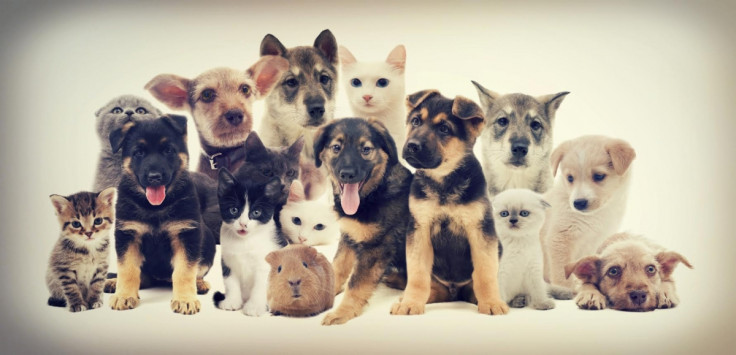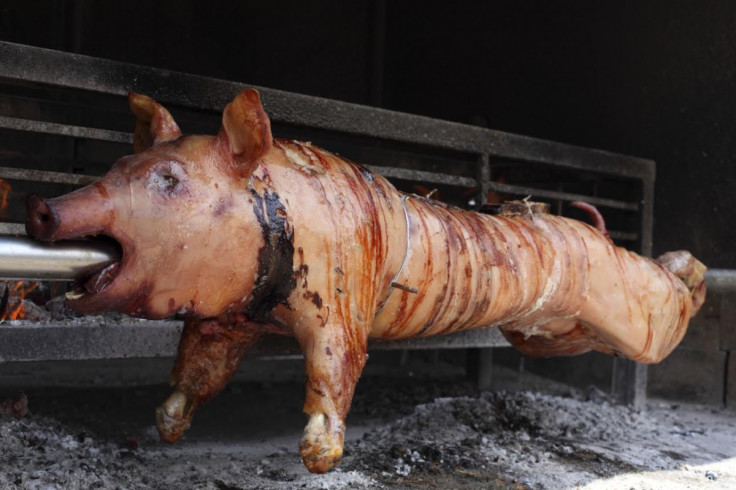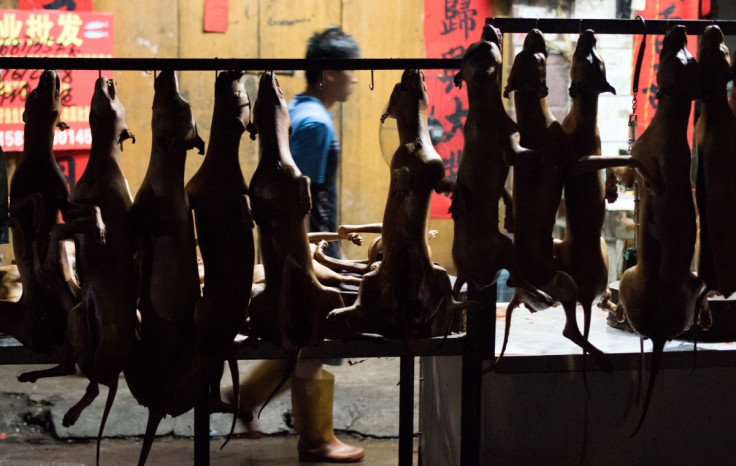Why it is selfish to keep a pet you would refuse to eat

A Swedish harness-racer recently had to defend her decision to eat her horse, Iffy Mant, after a vet had told her it would have to be put down following an injury. It's quite hard to see why people would be so upset about this, but it is probably at least in part due to our modern-day separation from the reality of how we get our food. When we feast our eyes on the meat counter at the supermarket or the butcher's shop, we do not see the gambolling lambs, happy pigs and frisky calves whose short lives were ended so that we could eat them. We see instead the lovely steaks, tasty rashers and juicy chops that we want to eat.
We know that the life of a farm animal is not a lot of fun; they are parted from their mothers and fattened up in the shortest possible time, and not always with the food they would naturally eat (remember mad cow disease in the UK that was traced back to cows eating mashed-up sheep? Cows are not naturally carnivores). Often they are also pumped with antibiotics and finally loaded on to a truck and taken to be slaughtered in a mechanised process that gives them little chance of a good life or a dignified end. But we do not seem to mind about this.
We want cheap meat, and if this means that the animals are no longer farmed in more traditional and less intensive ways, then so be it. If you always buy organic meat and know you are eating animals that had a more dignified life, you know that you have to pay more for this.
Read more: If you were angry about a lion being hunted, why put a turkey on your plate?
If, on the other hand, someone decides to eat an animal they have cared for, rather than some lump of plastic-wrapped flesh from the supermarket meat counter, people get very upset. The other thing to remember is that nothing is wasted in contemporary farming—leather shoes also come from dead animals, as does pet food for your dog and cat.

Eating a horse is considered quite normal in many cultures – Italy and France, for example, have butchers' shops that specialise in horsemeat. In the UK and other English-speaking countries, the idea of eating horsemeat is regarded as outrageous. This is not at all rational: a horse is not much different from a cow, a sheep or a deer, and we seem quite happy to eat all of those – even little Bambi – without getting too upset about it. Although we sometimes change their names: see beef, mutton, venison, veal or pork.
The real reason we get so upset about the idea of eating a horse is that our relationship with a horse in the contemporary world is often that of a companion animal, a pet – and we do not eat our pets. However, given the considerable worldwide environmental impact of pets, even this attitude might need to change in a world of ever-growing human population. A large dog on a largely meat-based diet consumes in a year the same amount of resources that an average citizen of Indonesia would use. Most of these resources are food, in both cases.
A large dog on a largely meat-based diet consumes in a year the same amount of resources that an average citizen of Indonesia would use
This might not have been so much of a problem back in the 1960s when the global population was only around three billion, but now it is nearly 7.5 billion and still rising. What is not rising is the land area available on which to grow the food to feed all of these people. The more the population rises the more farmland is taken for urban development so that all those people have somewhere to live. The more land that goes to feed pets, the less land there is to feed people. It may be that in the future, we might need to think about having less resource-intensive pets.

One way to reduce the impact of our pets might be to consider eating them. It really does not make sense to eat dogs or cats because, they are too high on the food chain. It takes a lot more land area to grow meat than it does to grow an equivalent amount of nutrition in the form of plants, so eating a meat-eater is not a good idea. However, pigs, chickens and rabbits are mostly vegetarian, are kept as pets and, for meat-eaters, are considered quite tasty.
We can be very irrational about the thought of this, however. In the West, people are particularly horrified at the idea of eating dogs, but not on the grounds of inefficiency – it is on the grounds of what can only be called cuteness.
As the world becomes more urbanised, the distance between growing and consuming food also seems to enlarge, so we forget where our food comes from.
Pigs are just as smart and friendly as dogs, but we seem to be quite prepared to eat them, along with cows, sheep and all of our other farmyard friends. Increasingly, researchers are finding that animal intelligence and overall cognitive capability in the animals that appear on our tables are much greater than we might like to think. As a species, we seem to have decided that some animals should die for the table but that others should not.
As the world becomes more urbanised, the distance between growing and consuming food also seems to enlarge, so we forget where our food comes from. In rural and even urban Asia, you still see chickens wandering around the house yard and being looked after – but they are destined to be eaten. Children grow up understanding that food comes from somewhere other than the supermarket and that death is an essential part of life.
If you want to eat meat, it might be fairer on the animal to eat an animal you have raised yourself so that you know that the animal you eat has had the best possible life before you chow down. But if you are not prepared to know what you are eating, then you probably should be a vegan.
Robert and Brenda Vale are professors at Victoria University of Wellington in New Zealand
© Copyright IBTimes 2024. All rights reserved.






